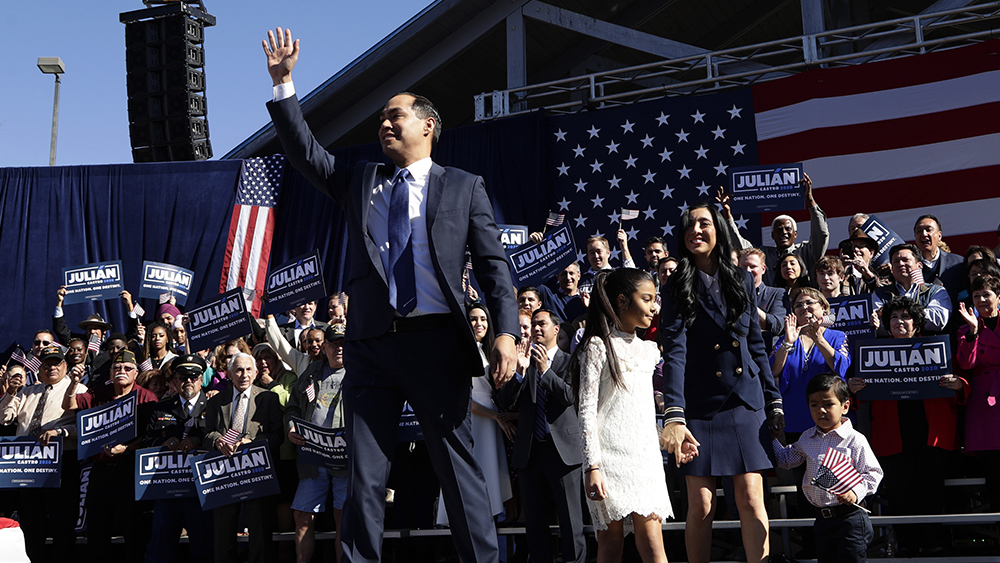Julián Castro, the former housing secretary who was the only Latino candidate in the Democratic primary, said today he would end his bid for the presidency, capping a yearlong campaign where he struggled in polls but remained a policy pacesetter on immigration and fighting poverty.
Throughout his campaign, Castro, 45, a native of San Antonio who spent five years as its mayor, portrayed himself as an unapologetic liberal who was shaped by his humble beginnings and had been overlooked by the press.
Though he created some memorable moments as he championed progressive policy and challenged his rivals on the campaign trail, Castro did not catch on with voters and was unable to break into the upper tier of a crowded primary field.
His exit is the latest departure of a candidate of color from a field that began as the most racially diverse ever in a Democratic primary.
“I’ve determined that it simply isn’t our time,” Castro said in a nearly four-minute video message released by his campaign, which included a montage from his year on the trail, including visits to the border and a homeless encampment in Oakland. “Today it’s with a heavy heart, and profound gratitude, that I will suspend my campaign for president.”
“I’m not done fighting,” Castro continued, though he gave no indication of his immediate plans. “I’ll keep working towards a nation where everyone counts, a nation where everyone can get a good job, good health care and a decent place to live.”
The video also features Castro listing the names of African Americans and Latinos who were killed by police or died in police custody in recent years, something he did often during debates and on the trail.
Castro’s departure shrinks the field of Democratic candidates to 14.
He was viewed as a potential vice-presidential pick by Hillary Clinton in 2016 and could be a valuable running mate this year, with Democrats eager to court Latino voters.
One of the most high-profile Latino Democrats ever to seek the party’s nomination, Castro shaped the national conversation about border control and immigration reform.
His memorable confrontation with former Representative Beto O’Rourke — a fellow Texan — during the first Democratic debate in June led to a broad discussion about whether to decriminalize border crossings, as Castro had suggested.
Almost instantly, Castro’s progressive stance on the issue became a litmus test among Democrats seeking the nomination, and several candidates ultimately embraced his position.
Castro, whose keynote address at the 2012 Democratic National Convention elevated him to the national stage, carved out substantive positions on core issues like housing, education, criminal justice and the economy, while developing unique and specific proposals on police reform, strengthening indigenous communities, protecting animals and eliminating lead poisoning.
But Castro never developed much enthusiasm among voters and did not find his footing in the polls, rarely exceeding 2 percent support in national or early-voting state surveys.
He found little success by explicitly pitching himself as potentially the first Latino in the White House, though he had support from many Latino elected officials.
Castro, a third-generation Mexican-American who has endured repeated scrutiny over his lack of Spanish fluency, ended his last campaign video with a message to supporters:
“Ganaremos un día!” The translation is offered only in the subtitles: “One day we’ll win!”
